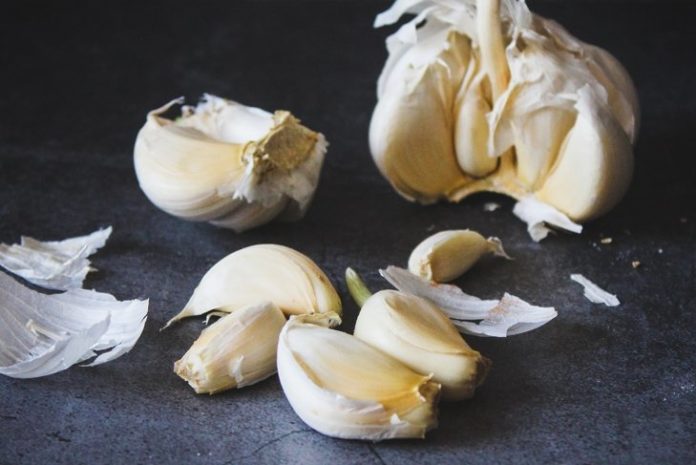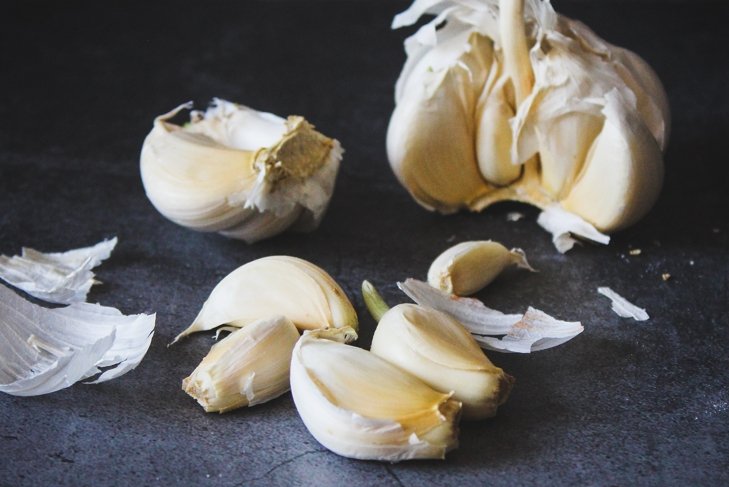
You’ve done your homework and made the decision that getting a flu shot every year is not for you. Let’s look at some natural strategies you can employ to help avoid getting sick.
01
Focus inward
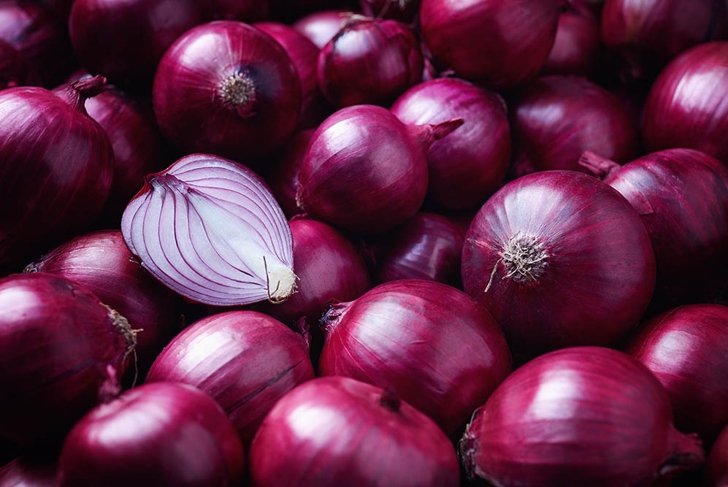
There is no guaranteed protection from the flu. One reason is simply that it’s not just a single virus. Rather, “the flu” we experience each year can be caused by a number of influenza virus types (A or B) and subtypes, depending upon its particular surface proteins.
That doesn’t mean we can’t rely on our innate immune system for some protection, but we need to keep it healthy so it has a fighting chance. When it comes to supporting your immune system, always remember the fundamentals.
02
Diet and lifestyle are key
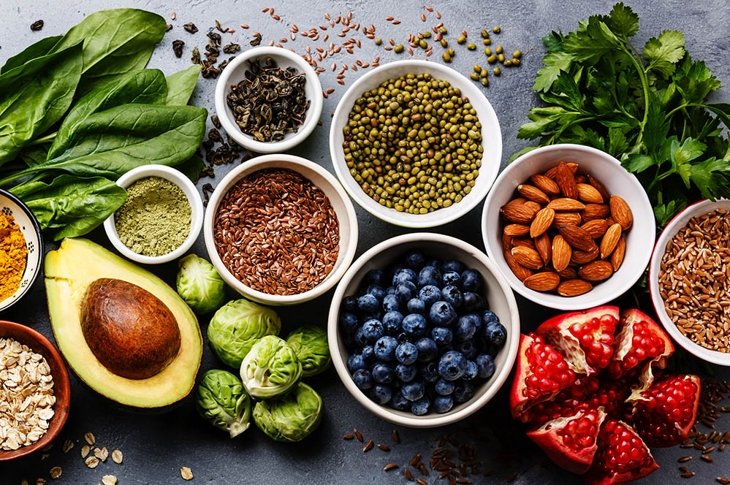 Eating a nutrient-dense diet full of fresh fruit and vegetables, high quality protein, and whole grains is crucial in providing your immune system with the micro- and macronutrients it needs. Be sure to include fresh herbs, garlic, and onion, which contain beneficial secondary compounds.
Eating a nutrient-dense diet full of fresh fruit and vegetables, high quality protein, and whole grains is crucial in providing your immune system with the micro- and macronutrients it needs. Be sure to include fresh herbs, garlic, and onion, which contain beneficial secondary compounds.
Regular exercise keeps your blood oxygenated and your lungs strong. Minimize intake of sugar and alcohol to keep your body from getting run down and vulnerable. Get plenty of sleep and keep stress low. Mindfulness practices including meditation and yoga can help keep the mind calm and the body relaxed.
Asian-inspired chicken noodle soup
Here’s a nutritional upgrade of the iconic cold- and flu-fighter soup that offers a fiery Asian twist. The searing serrano chili pepper is a smaller and more potent version of the jalapeno. If you want your soup to pack more of a punch, include more serrano seeds.
03
Supplemental support from A to zinc
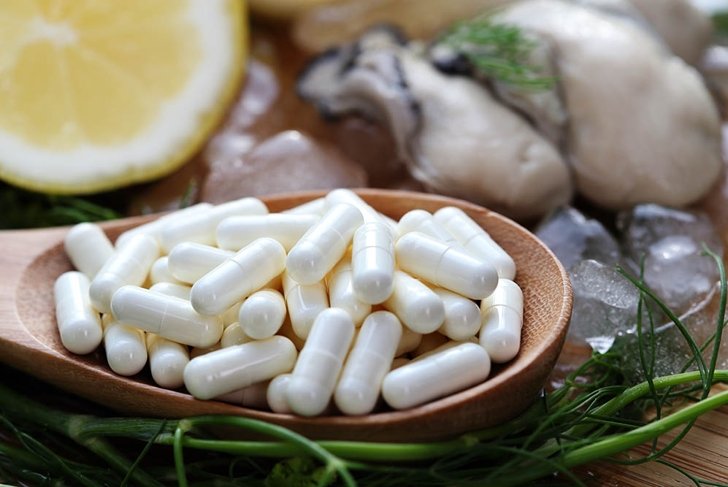 When we need a little support, we can turn to several supplements that have demonstrated helpful antiviral properties. Maintaining a healthy immune system with a little support may help keep the bugs at bay. And if you do succumb, they may help reduce the severity of symptoms and/or the length of illness.
When we need a little support, we can turn to several supplements that have demonstrated helpful antiviral properties. Maintaining a healthy immune system with a little support may help keep the bugs at bay. And if you do succumb, they may help reduce the severity of symptoms and/or the length of illness.
04
A, B, C, and D vitamins
 Vitamins A and B6 are important for the development and regulation of our innate immune system. Vitamin C is well known as a cold and flu fighter, but it seems to be less effective for prevention than it is for reducing the severity and duration of colds once we get sick.
Vitamins A and B6 are important for the development and regulation of our innate immune system. Vitamin C is well known as a cold and flu fighter, but it seems to be less effective for prevention than it is for reducing the severity and duration of colds once we get sick.
When it comes to vitamin D, among those who are deficient, supplementation is consistently associated with benefits to immunity. Daily vitamin D supplementation has been shown to reduce incidence of influenza A in schoolchildren.
05
Echinacea
 Did you know that children catch an average of six to 10 colds or flu every year? When your child catches a cold, starting echinacea as soon as symptoms appear provides the best chance for a beneficial effect. The root of Echinacea purpurea may help lessen symptom severity and shorten the duration of illness.
Did you know that children catch an average of six to 10 colds or flu every year? When your child catches a cold, starting echinacea as soon as symptoms appear provides the best chance for a beneficial effect. The root of Echinacea purpurea may help lessen symptom severity and shorten the duration of illness.
06
Elderberry
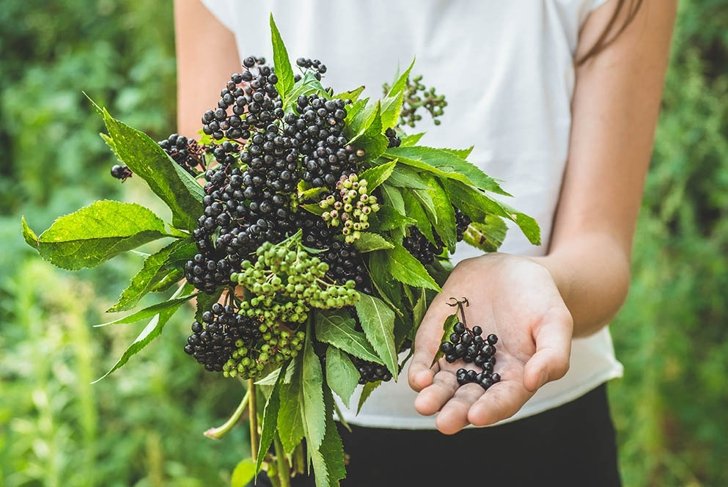 Elderberry (Sambucus nigra) is a favourite folk medicine for its ability to inhibit viral infection. Packed with nutrients including vitamin C, fibre, and antioxidants that are known to help stimulate your immune system and fight inflammation, elderberries have shown positive effects on the length and severity of flu and common cold symptoms. Elderberries are most often consumed as a syrup, but you might also find them in teas, gummies, lozenges, or pills.
Elderberry (Sambucus nigra) is a favourite folk medicine for its ability to inhibit viral infection. Packed with nutrients including vitamin C, fibre, and antioxidants that are known to help stimulate your immune system and fight inflammation, elderberries have shown positive effects on the length and severity of flu and common cold symptoms. Elderberries are most often consumed as a syrup, but you might also find them in teas, gummies, lozenges, or pills.
07
Garlic
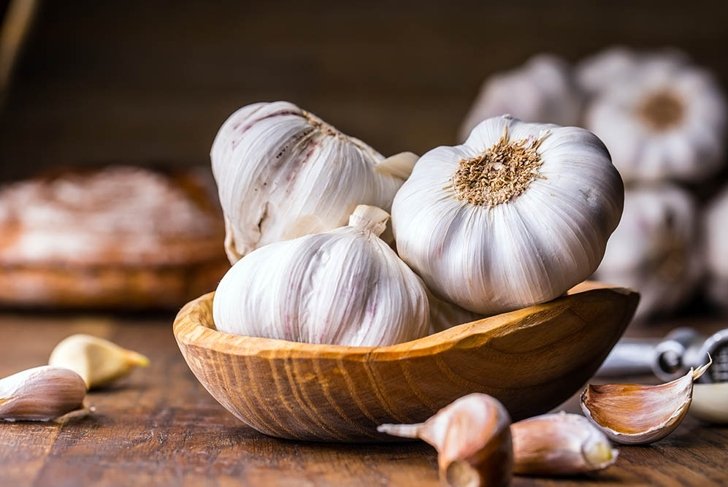 A favourite ingredient in many chicken soup recipes, garlic contains allicin, which has been shown to kill viruses including rhinovirus and parainfluenza virus. A randomized trial of 120 adults found that aged garlic extract increased T-lymphocytes and NK cells (important immune system fighters) and reduced the severity and duration of cold and flu symptoms.
A favourite ingredient in many chicken soup recipes, garlic contains allicin, which has been shown to kill viruses including rhinovirus and parainfluenza virus. A randomized trial of 120 adults found that aged garlic extract increased T-lymphocytes and NK cells (important immune system fighters) and reduced the severity and duration of cold and flu symptoms.
08
N-acetylcysteine (NAC)
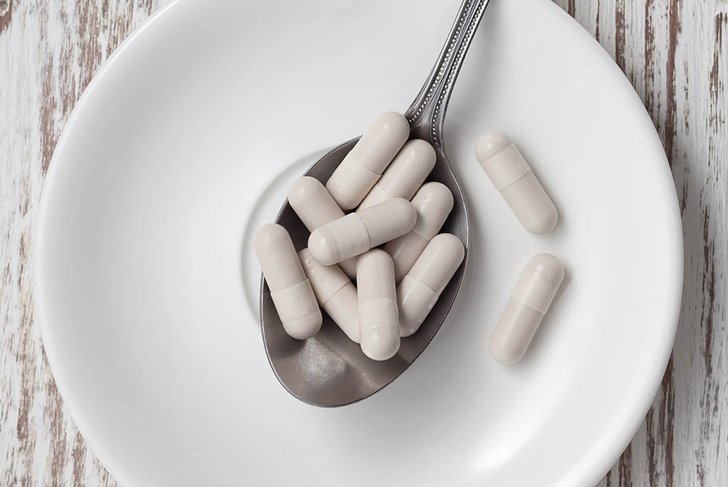 Glutathione, considered to be the master antioxidant, is responsible for cellular health throughout the body, DNA synthesis and repair, and support in fine-tuning the innate immune response to infection. Glutathione can be taken as a supplement but is typically expensive. Alternatively, N-acetylcysteine (NAC), a precursor to glutathione in the body, is considered a more affordable option.
Glutathione, considered to be the master antioxidant, is responsible for cellular health throughout the body, DNA synthesis and repair, and support in fine-tuning the innate immune response to infection. Glutathione can be taken as a supplement but is typically expensive. Alternatively, N-acetylcysteine (NAC), a precursor to glutathione in the body, is considered a more affordable option.
09
Probiotics
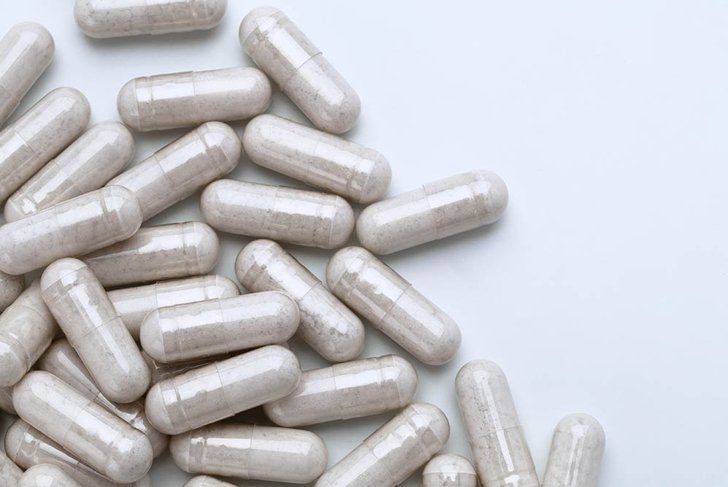 Because they function as immune modulators, probiotic supplementation may be a powerful tool against cold and flu viruses. A 2015 Cochrane meta-analysis that evaluated 12 research studies involving 3,720 participants, including children, showed better results in several areas for supplementation with probiotics over placebo, including reducing the number who experienced acute upper respiratory tract infection as well as their average duration and cold-related school absences.
Because they function as immune modulators, probiotic supplementation may be a powerful tool against cold and flu viruses. A 2015 Cochrane meta-analysis that evaluated 12 research studies involving 3,720 participants, including children, showed better results in several areas for supplementation with probiotics over placebo, including reducing the number who experienced acute upper respiratory tract infection as well as their average duration and cold-related school absences.
10
Zinc
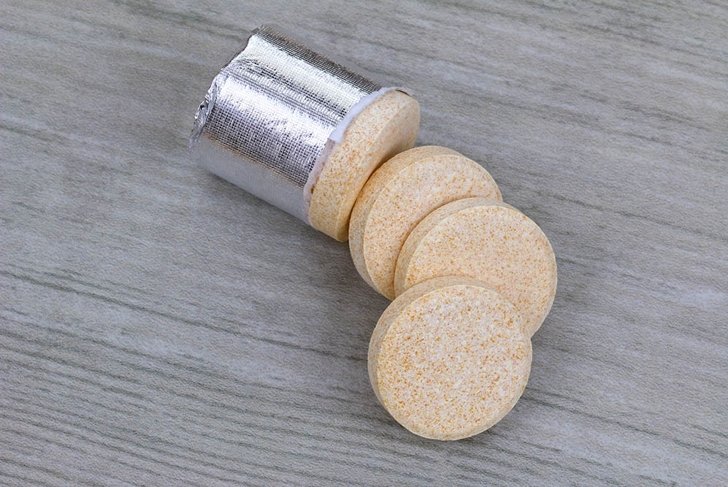 This mineral may be one of the most widely studied for its antiviral effects. It can improve the antiviral response (ability of the innate immune system to resist a virus), inhibit viral replication (slowing down the ability of the virus to grow new versions of itself during the infection process), and reduce related symptoms (sneezing, coughing, fever). Zinc lozenges seem to be particularly effective.
This mineral may be one of the most widely studied for its antiviral effects. It can improve the antiviral response (ability of the innate immune system to resist a virus), inhibit viral replication (slowing down the ability of the virus to grow new versions of itself during the infection process), and reduce related symptoms (sneezing, coughing, fever). Zinc lozenges seem to be particularly effective.
Prevention 101
How to not get sick:
- Wash your hands frequently, for at least 20 seconds.
- Don’t touch your face, particularly your eyes, nose, and mouth.
- Keep common household surfaces disinfected.
- Put at least two metres between you and anyone that seems sick.
- Stay home if you feel sick and wear a mask if you must go out.
- Always use your elbow or a tissue if you have to cough or sneeze, and face away from others.
- Keep your immune system strong so you’re always ready!
11
More than an old folk remedy
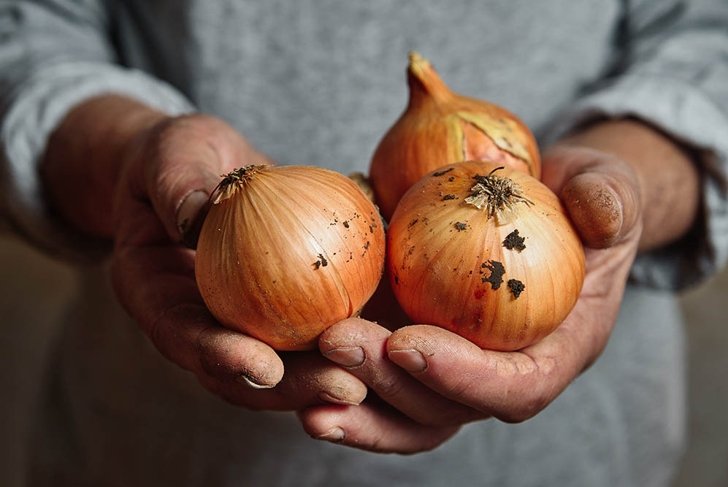 Most of us can remember being served warm bowls of chicken soup to relieve our cold and flu symptoms. It isn’t just an old folk remedy: although the exact mechanisms haven’t all been deduced, science is pointing to some of the nutrient- and antioxidant-dense ingredients in chicken soup for their therapeutic properties in fighting viral upper respiratory infections. These ingredients include polyphenol-packed onions, beta carotene-rich carrots, virus-fighting garlic, and, of course, chicken.
Most of us can remember being served warm bowls of chicken soup to relieve our cold and flu symptoms. It isn’t just an old folk remedy: although the exact mechanisms haven’t all been deduced, science is pointing to some of the nutrient- and antioxidant-dense ingredients in chicken soup for their therapeutic properties in fighting viral upper respiratory infections. These ingredients include polyphenol-packed onions, beta carotene-rich carrots, virus-fighting garlic, and, of course, chicken.
Chicken is an excellent source of the compound carnosine. Preliminary studies have found carnosine to have antioxidant and anti-inflammatory properties that may stave off viral infections such as the flu by stopping it from replicating and spreading inside cells.
The comforting warm broth of this soup may also help loosen mucus to ease congestion and alleviate a sore throat.
12
Snooze more to sneeze less
 Our lives have only become busier in recent decades, and getting a good night’s sleep has become a luxury for a lot of us. Rather than being a luxury, though, developing good sleep hygiene is as essential for maintaining a healthy immune system as getting your regular workout—both are key to keeping the sniffles at bay.
Our lives have only become busier in recent decades, and getting a good night’s sleep has become a luxury for a lot of us. Rather than being a luxury, though, developing good sleep hygiene is as essential for maintaining a healthy immune system as getting your regular workout—both are key to keeping the sniffles at bay.
Paula Blanchet is a registered holistic nutritionist at interplaynutrition.com.
This article was originally published in the September 2020 issue of alive Canada magazine, under the title \”Bug-busting immune boosters.\”





















